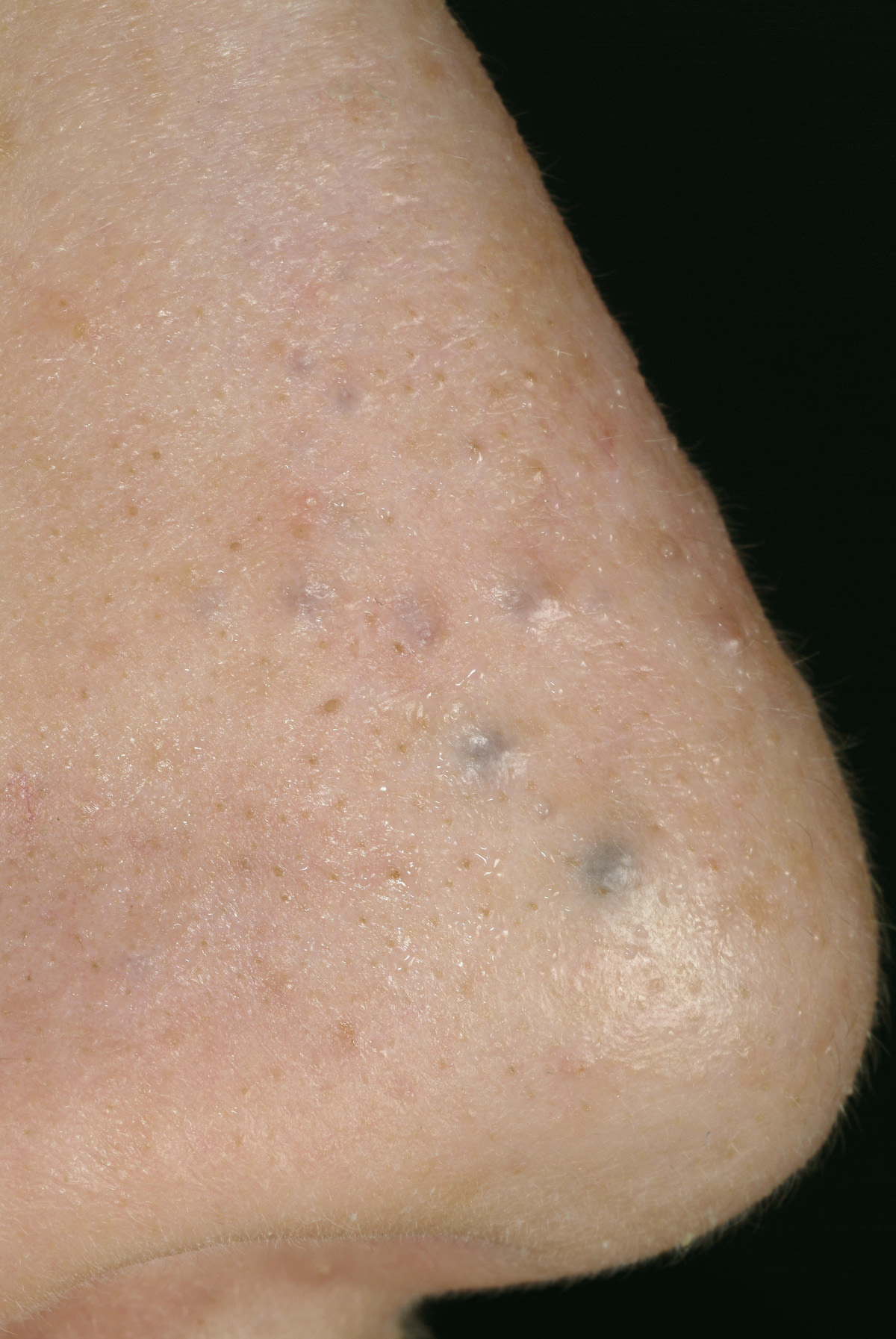Hidrocystoma on:
[Wikipedia]
[Google]
[Amazon]
Hidrocystoma (also known as cystadenoma, a Moll's gland cyst, and a sudoriferous cyst) is an

adenoma
An adenoma is a benign tumor of epithelial tissue with glandular origin, glandular characteristics, or both. Adenomas can grow from many glandular organs, including the adrenal glands, pituitary gland, thyroid, prostate, and others. Some adenom ...
of the sweat gland
Sweat glands, also known as sudoriferous or sudoriparous glands, , are small tubular structures of the skin that produce sweat. Sweat glands are a type of exocrine gland, which are glands that produce and secrete substances onto an epithelial sur ...
s.Freedberg, et al. (2003). ''Fitzpatrick's Dermatology in General Medicine''. (6th ed.). McGraw-Hill. .
Hidrocystomas are cysts of sweat ducts, usually on the eyelids. They are not tumours (a similar-sounding lesion called hidroadenoma is a benign tumour).
The three types of "sweat" glands are: True sweat glands or eccrine glands, sebaceous glands, which have an oily secretion around hair follicles, and apocrine glands, which have more oily product than eccrine glands and are found on the face, armpit, and groin.
Hidrocystomas usually arise from apocrine glands. They are also called cysts of Moll or sudoriferous cysts. A type of hidroadenoma that arises from eccrine glands is uncommon.
Other related conditions on the eyelids include chalazion (a granulomatous reaction to sebaceous glands on the eyelid), lacrimal duct cysts (cysts related to tear ducts), and nasolacrimal duct cysts (the nasolacrimal duct drains tears into the nose via a punctum on the lower eyelid).
Additional images

See also
*Syringoma
Syringomas are benign tumor, benign eccrine sweat gland, eccrine sweat duct tumors, typically found clustered on eyelids, although they may also be found in the armpits, abdomen, chest, neck, scalp, or groin area, including genitals, in a symmetri ...
* Acrospiroma
* Seborrheic keratosis
A seborrheic keratosis is a non-cancerous (benign) skin tumour that originates from cells, namely keratinocytes, in the outer layer of the skin called the epidermis. Like liver spots, seborrheic keratoses are seen more often as people age.
The tum ...
* List of cutaneous conditions
Many skin conditions affect the human integumentary system—the organ system covering the entire surface of the body and composed of skin, hair, nails, and related muscle and glands. The major function of this system is as a barrier against t ...
* List of cutaneous neoplasms associated with systemic syndromes
Many cutaneous neoplasms occur in the setting of systemic syndromes.
See also
* List of cutaneous conditions
* List of contact allergens
* List of cutaneous conditions associated with increased risk of nonmelanoma skin cancer
*List of cutane ...
References
External links
Epidermal nevi, neoplasms, and cysts Apocrine {{Epidermal-growth-stub